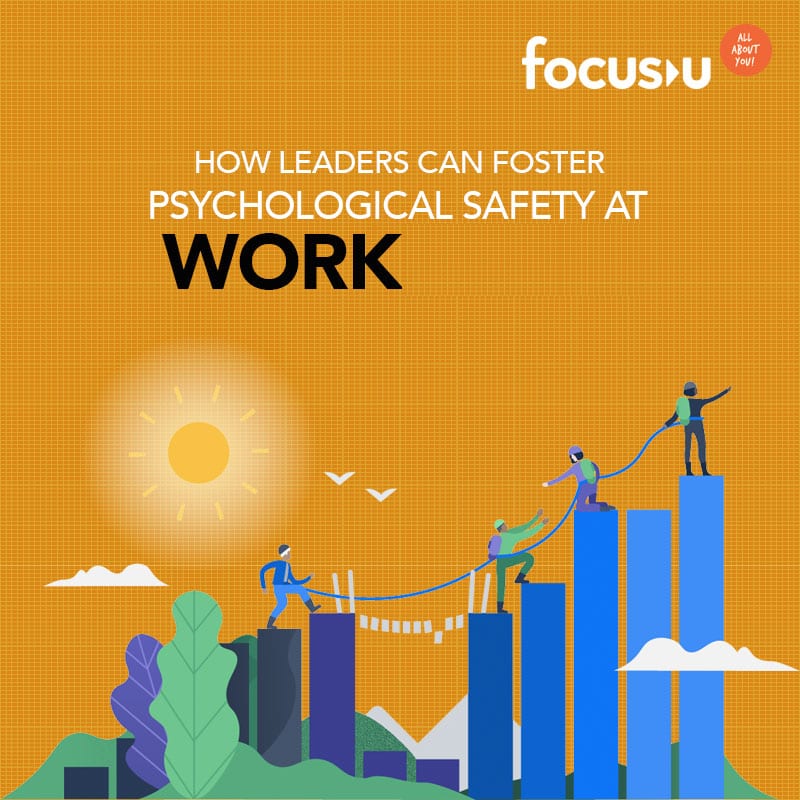Project Aristotle is the name given to Google’s Teamwork Study, which analyzed the five essential traits that allow teams to accomplish high levels of success. Out of the five traits, psychological safety stood out to be the most important one. But what is psychological safety? And how does it lead to team effectiveness and success?
Researchers Amy Edmondson and Jeff Polzer define psychological safety as a “climate where people recognize their ability and responsibility to overcome fear and reluctance to speak up with potentially controversial ideas or questions.”
Many employees find it tough to speak at work. Some because of fear of criticism from their bosses or managers, and some due to concern that if their idea or suggestion is rejected, they will end up becoming a joke in front of their colleagues.
Leaders have a critical role to play in fostering a culture of psychological safety, a culture where employees can feel safe and confident to speak up. It has been noted that the leaders who effectively regulate their emotions like openness, joy, and enthusiasm can induce those around them to do the same. Furthermore, the most effective leaders of all-time exercise high degrees of self-awareness about the emotional states they are experiencing.
Here are some simple tips for how a leader can foster a culture of psychological safety at work
Foster Healthy Conflict
Table of Contents
Leaders must work hard to sustain a culture involving open and honest communication. It is imperative to set a space for differences of opinion so that team members can learn how to disagree without being disagreeable. When employees learn that not only is it okay to engage in a healthy debate but it is actually productive, it leads to a safer environment for the processing of differences without any fear of repercussions.
Be Inclusive
Certain leadership behaviours are essential in creating a psychologically safe environment. One such type of behavior is inclusiveness. An inclusive leader is the one who treats every individual and team at work fairly and equally, who understands that all people are not same and there will be differences, and, most importantly, who empowers the people around him or her. A leader must have these traits in order to effectively communicate to team members that their opinions and ideas are genuinely valued. A lot of studies have revealed that the leaders who foster an inclusive culture at their workplaces witness an increase in employee productivity, better decision-making, and improved collaboration.
Be Securely Vulnerable
The keyword here is securely. A leader needs to be secure enough to recognize weaknesses, be vulnerable, and admit mistakes when they inevitably happen. The purpose is to show your team what you can expect from them and build trust, not to have them take care of you. Being vulnerable doesn’t make you weak; it’s quite the opposite – it makes you safe and secure, which inevitably creates a culture of psychological safety for the team.
It is true that leaders have a high impact on the culture of the organization and are often viewed as role models by their co-workers and teams. By keeping the above-mentioned points in mind, leaders can cultivate a healthy and psychologically safe work environment, which will yield great results, personally and professionally.










